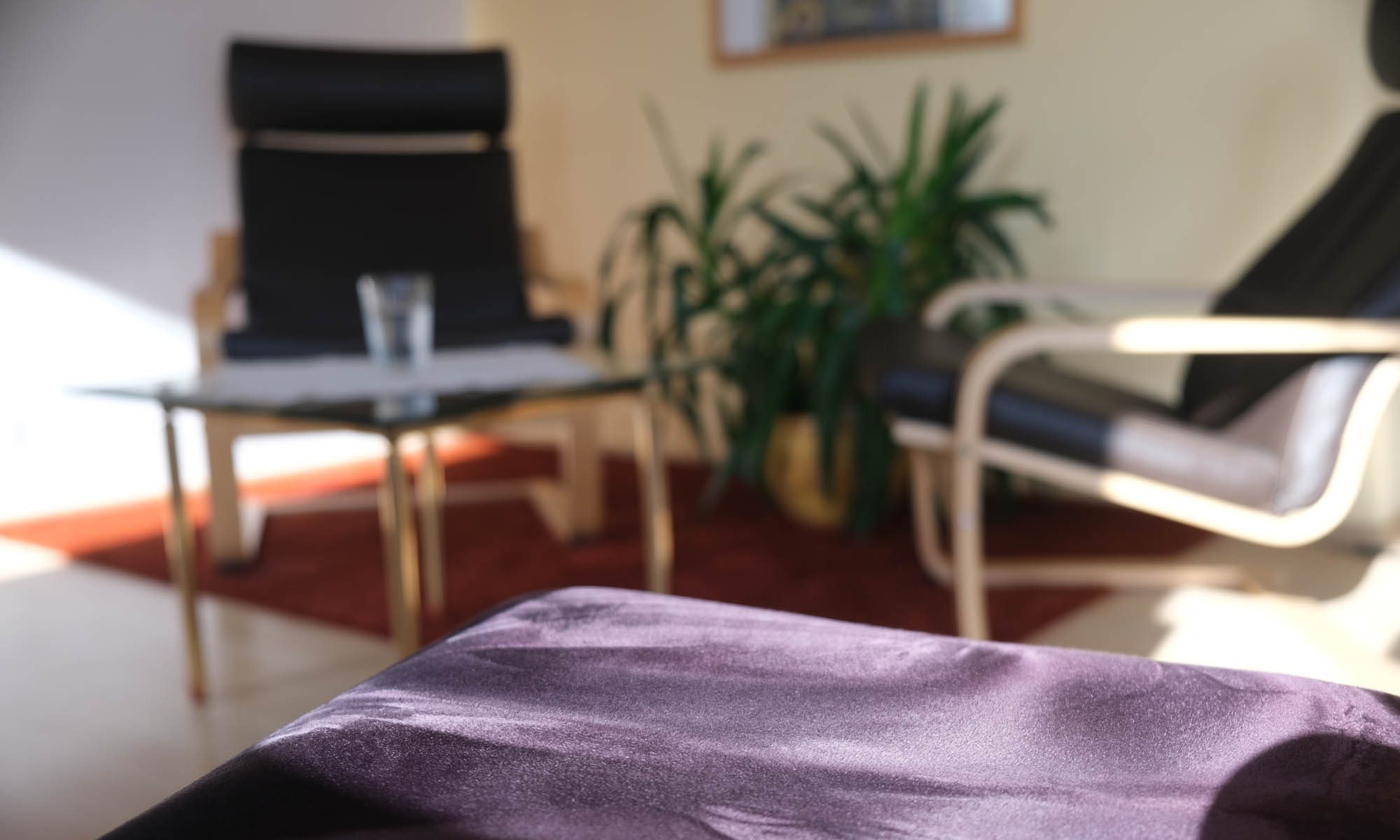
Be Connected by Bettina Bonkas
Englisch | Coaching | Resilienz + Improvisation
plus: Sprachreisen + Bildungsurlaub in England
Kundenstimmen
Kundenstimmen: Auf dieser Seite lasse ich meine Kunden sprechen. Was haben sie zu sagen über meine Arbeit:
Einzigartige Kombination aus Resilienzförderung & Englisch
Was wir als Unternehmen an Deiner Arbeit besonders schätzen, ist die einzigartige Kombination aus Resilienzförderung und der Vermittlung der englischen Sprache.
Du schaffst es, durch Deine einfühlsame und motivierende Art, Menschen über sich hinauswachsen zu lassen.
Es ist beeindruckend zu sehen, wie Du unsere Mitarbeiter*innen, die zu Beginn fast keine Englischkenntnisse hatten, innerhalb eines Jahres zu selbstbewussten Sprecher*innen machst, die mit einer soliden Basis und großem Enthusiasmus auftreten.
Wenn uns unsere Kunden und Partner nach unserem Erfolgsrezept hierzu fragen, das verweisen wir gerne an Dich mit diesen drei Punkten:
- Du gibst Deinen Teilnehmer*:innen Raum, sich auszuprobieren, ohne Angst vor Fehlern – das ist so essenziell für den Lernprozess.
- Deine „Yes, I can!“-Mentalität überträgt sich auf die Menschen, mit denen Du arbeitest. Sie fühlen sich gestärkt, wachsen in ihrer Persönlichkeit und erlangen nicht nur Sprachkenntnisse, sondern auch eine große Portion Selbstbewusstsein.
- Besonders wertvoll finde ich Deine Fähigkeit, auf jede*n individuell einzugehen und ihnen nicht nur Grammatik oder Vokabeln, sondern auch Denkanstöße und positive Energie mitzugeben.
Für uns als Unternehmen ist Dein Coaching ein absoluter Gewinn: Neben den verbesserten Sprachkenntnissen unserer Mitarbeitenden hat Deine Arbeit unsere Teamkultur gestärkt.
Es ist spürbar, wie Dein Coaching nicht nur die beruflichen, sondern auch die persönlichen Kompetenzen der Teilnehmenden erweitert hat.
Deine Methode aktiviert nicht nur das Sprachvermögen, sondern auch den Mut und die Selbstwirksamkeit – und genau das macht langfristig den Unterschied.
Ich wüsste tatsächlich nichts, was ich an Deiner Arbeit verbessern würde, außer vielleicht: Mach weiter so und inspiriere noch mehr Menschen! 😊
Hajran Muric – Global Head of Procurement & Fullfilment mvcvidera
Über den Tellerand hinausschauen
“Unsere English-Lunchs werden unseren Mitarbeitern sehr gerne besucht. Denn Bettina Bonkas & Kollegen speisen diese besonderen Mittagspausen mit kurzweiligen Gesprächen und greifen dabei interessante Themen aus dem aktuellen Zeitgeschehen & der Geschäftswelt auf.
Dadurch fühlen wir uns animiert, gedanklich auch mal über den Alltag – also über den Tellerrand – hinauszuschauen.
Auf die unterschiedlichen Sprachniveaus wird sehr gut eingegangen und auch die weniger sprachbegeisterten Kollegen werden animiert, ihre Meinung in eine Diskussion einfließen zu lassen oder bei Spielen dabei zu sein.
Unserem Wunsch, ein unkonventionelles Sprachcoaching in einer lockeren & entspannten Atmosphäre zu bieten, kommt Be Connected voll und ganz nach.”
Marion Krebs, KIT-Technologies GmbH
Eine Bereicherung – nicht nur für die Sprachkenntnisse unserer Mitarbeiter
“… Das Sprach-Coaching von Frau Bonkas und ihrem Team zeichnet sich durch eine sehr hohe Professionalität aus. Sie verfügen über sehr gute Fach- und Methodenkenntnisse und sind dabei äußerst engagiert. Ihr Coaching findet in einer entspannten und anregenden Atmosphäre statt und bezieht die verschiedenen Lerner-Persönlichkeiten mit ein.
Frau Bonkas hat die Fähigkeit, zu Menschen sehr schnell eine Beziehung aufzubauen und sie sowohl thematisch als auch auf persönlicher Ebene mitzunehmen. Als akkreditierter Coach und Resilienz-Practitioner geht sie zusätzlich auf die individuellen Bedürfnisse unserer Mitarbeiter ein und erzielt damit hervorragende Ergebnisse.
Unsere Mitarbeiter freuen sich auf das Sprach-Coaching und empfinden die Zeit als Bereicherung, nicht nur für ihre Sprachkenntnisse. Frau Bonkas bringt immer wieder Elemente aus der angewandten Improvisation in ihr Coaching mit hinein und gibt damit dem Coaching eine angenehme Leichtigkeit und unseren Mitarbeitern mehr Sicherheit, nicht nur beim Sprechen …”
Manja Teichmann, Director People Partner DACH, FIS Systeme GmbH
Meine Mitarbeiter waren begeistert
“Wir haben in unserem Unternehmen Englisch-Coaching in 3 Leistungsstufen wöchentlich über eineinhalb Jahre mit Bettina durchgeführt.
Meine Mitarbeiter waren von dem professionellen Coaching und das individuelle Eingehen auf die einzelnen Leistungsniveaus begeistert.
Es ist schön zu sehen wie die Fortschritte in der tägliches Praxis Anwendung finden und zum Einsatz kommen.”
Christian Wagner, Geschäftsführer Elektro Wagner GmbH
Praxisnahes Coaching in entspannter Atmosphäre für unsere Mitarbeiter
“Frau Bonkas und ihrem Team ist es gelungen, mit ihren guten Fachkenntnissen und ihrer Professionalität unsere Mitarbeiter erfolgreich zu unterrichten. Dabei haben sie viel Engagement und Einfühlungsvermögen bewiesen.
In ihrem Coaching haben sie die unterschiedlichen Lernerpersönlichkeiten berücksichtigt und ihre Methodik entsprechend angepasst.
Besonders hervorzuheben ist, dass das Coaching sehr praxisnah war. Das Coaching fand in einer vertrauensvollen und entspannten Atmosphäre statt, in der unsere Mitarbeiter frei sprechen konnten und mögliche Hemmungen abgebaut haben.
Hervorheben möchten wir auch den sehr freundlichen und kundenorientierten Service. Bei Frau Bonkas haben wir eine sehr gute Beratung bekommen, in der unsere Bedürfnisse als Kunde im Zentrum standen. Sie hat bei der Auswahl ihrer Kollegen immer eine sehr sichere Hand bewiesen.”
Georg Remmers und Monika Neuer, Heraeus Holding GmbH
Ich kenne kaum jemanden, der so empathisch und wertschätzend ist
Bettina habe ich für ein Englischtraining kennengelernt und sie hat mir so viel mehr als bessere Sprachkenntnisse beigebracht. Sie hat mich gecoacht für ein englisches Bewerbungsgespräch und ich arbeite heute noch erfolgreich in dem Unternehmen.
Sehr, sehr gerne empfahl ich Bettina auch einer guten Freundin und auch ihr hat die Arbeit mit Bettina ausgesprochen gutgetan.
Ich kenne kaum jemand, der so emphatisch und wertschätzend ist wie Bettina.
Schnell hatte ich das Gefühl, sie versteht mich und weiß, welche Wege für mich gangbar sind.
Sie stärkt die positiven Aspekte und zeigt behutsam neue Denkansätze und Perspektiven auf.
Da sie selbst auch in Wirtschaftsunternehmen gearbeitet hat, kann sie auch die beruflichen Themen sehr gut einschätzen.
Bettina ist es eine Herzensangelegenheit Menschen in Ihrer Individualität zu unterstützen und zu entwickeln.
A.S., Oberursel
Der Kurs wird durch dein Wissen ums Lernen bereichert
Liebe Bettina,
nochmals herzlichen Dank für diese sehr lehrreiche und zugleich unterhaltsame Woche. Ich habe deinen Kurs als ausgesprochen abwechslungsreich erlebt und bin mir sehr bewusst, wie viel Glück ich sowohl mit dir als Trainerin als auch mit der Gruppe hatte.
Der Kurs war aus meiner Sicht sehr stimmig und gut aufgebaut und wird durch dein Wissen ums Lernen sehr bereichert. Besonders beeindruckt hat mich dein Umgang mit Feedback und Verbesserungsvorschlägen – offen, ruhig und auf Augenhöhe. Das ist alles andere als selbstverständlich und für mich eine echte Stärke. Bitte behalte dir das unbedingt bei.
Die am Abend versandten optionalen Hausaufgaben waren auch eine sehr gute Idee. So hatte jeder die Möglichkeit, für sich zu entscheiden, ob das Lernen zu Hause fortgesetzt wird. Dazu passten auch die rausgesuchten Beiträge aus deiner Homepage. Das fand ich eine wertvolle Ergänzung. Ich weiß, dass die Tage auch für einen Trainer sehr anstrengend sind und dehalb an dieser Stelle ein besonderes Dankeschön für deine Energie.
Großartig fand ich auch dein feines Gespür für die Gruppe, die unterschiedlichen Sprachlevel und den jeweiligen Tagesverlauf. Du hast flexibel reagiert, Inhalte angepasst und sogar aktiv nach anderen Räumen gesucht, wenn du gemerkt hast, dass eine Übung dort besser aufgehoben wäre. Dieses Engagement und deine Aufmerksamkeit für solche Details haben den Kurs für mich spürbar aufgewertet.
Die Nachbetreuung ist auch sehr schön, das zeigt mir, dass dir die Gruppe echt am Herzen liegt.
Steffen Birnbaum, Solution Train Engineer, DB InfraGo AG














 Less digital overload
Less digital overload












